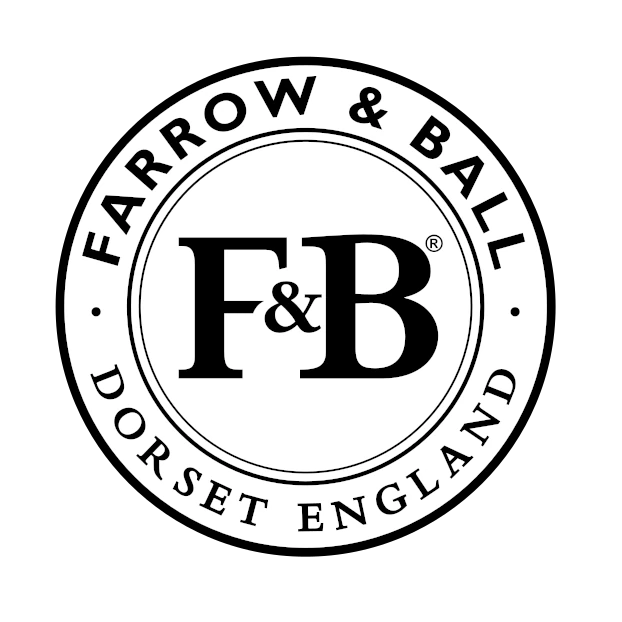Benjamin Moore Springfield Sage 510
| Official page: | Springfield Sage 510 |
| Code: | 510 |
| Name: | Springfield Sage |
| Brand: | Benjamin Moore |
What color is Benjamin Moore Springfield Sage?
Benjamin Moore 510 Springfield Sage brings a subtle and sophisticated touch to any space, evoking a sense of tranquility. This versatile shade pairs beautifully with warm neutrals like Benjamin Moore 700 Simply White and Benjamin Moore 1489 Soft Fern for a calming and harmonious combination. Accented with deep tones such as Benjamin Moore 2119-30 Night Shade or soft pastels like Benjamin Moore 2042-70 Azores, this color adds depth and richness to a room's decor scheme. Whether used as a main color or as an accent, Benjamin Moore 510 Springfield Sage exudes timeless elegance and complements a wide range of styles.
Springfield Sage for living room (4 photos)
Check out this stunning Dark color used in real living rooms. Explore how this green shade can create a unique space
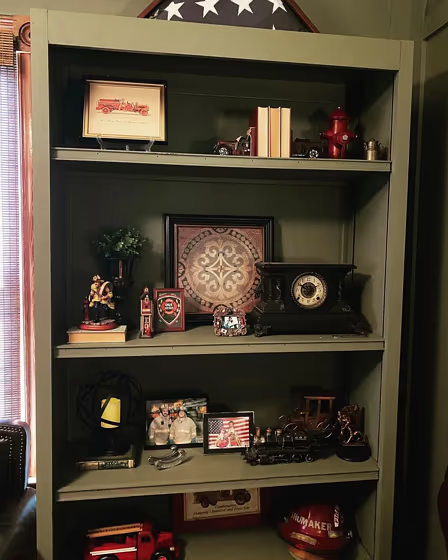
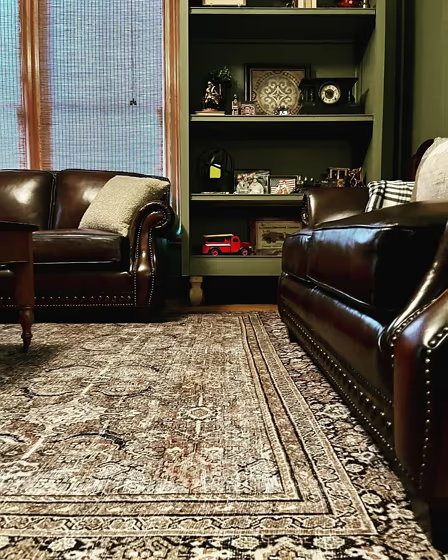
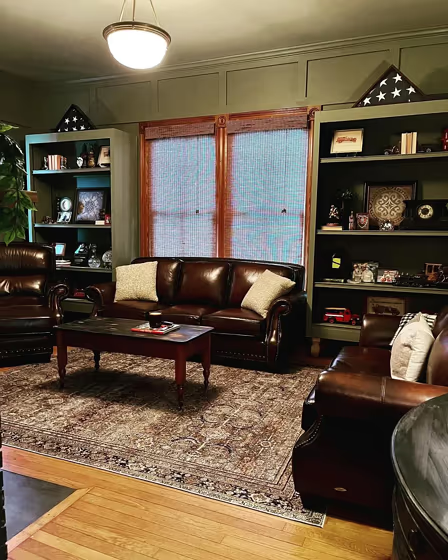
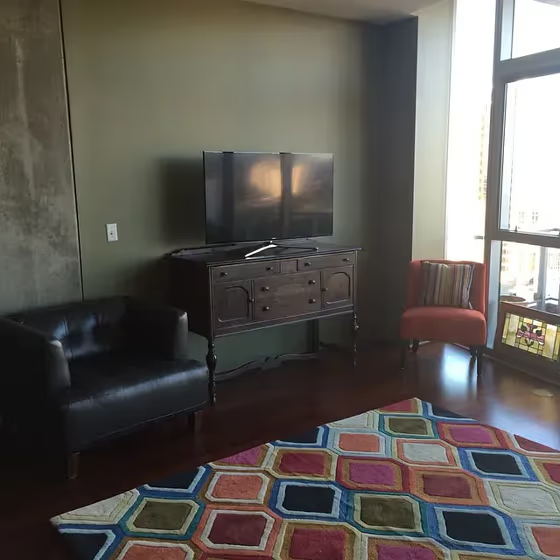
Springfield Sage for exterior
Looking for a fresh new look for your house exterior or starting from skretch? We’ve collected pictures of real-life homes that have been painted with this warm green hue. Find inspiration for your house’s exterior, front doors, gates, shutters, frames or windows.
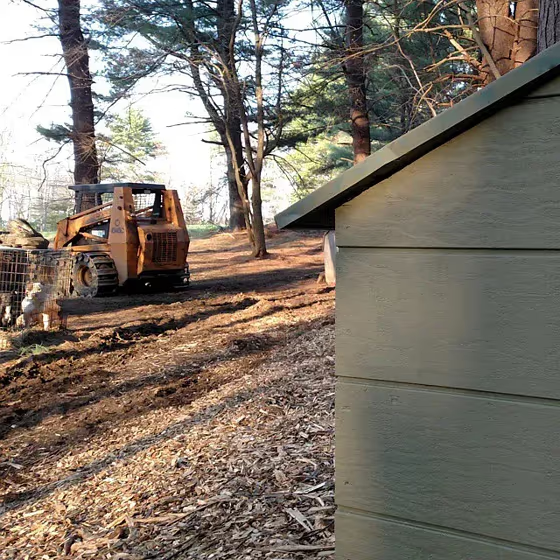
Try before you buy
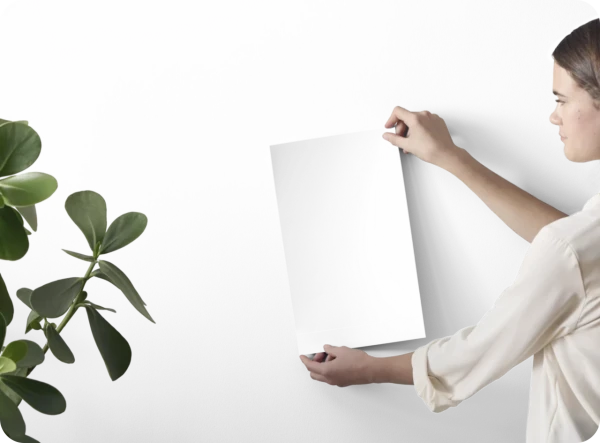

100% accurate
reusable paint samples

Peel, stick,
and repeat

Twice painted
with real paint

Next day
delivery
What are Benjamin Moore Springfield Sage undertones?
Springfield Sage has a clear yellow undertone based on its position in the color space. We identify undertones by isolating the pure hue (separating it from lightness and saturation), which avoids distortions caused by tints, tones, and shades.
This method is generally more reliable than judging undertones on a white background.
HEX value:
#858367
RGB code:
133, 131, 103
Is Benjamin Moore Springfield Sage 510 cool or warm?

With a hue of 56°, this dark green leans warm, but it's close to neutral and can read cooler in some light.
510 Springfield Sage HSL code: 56, 13%, 46%
Hue - degree on a color wheel from 0 to 360. 0 is red, 120 is green, and 240 is blue.
Saturation is expressed as a percentage. At 0%, it appears as a shade of grey, and at 100%, it is in full color.
Lightness is also a percentage value. 0% is black, and 100% is white.
How light temperature affects Springfield Sage
Natural Lighting. During the day, natural light shifts from about 2000 K at sunrise/sunset to 5500–6500 K at noon.
In addition, natural‑light temperature depends on its direction:
| Direction of sunlight | Visible temp. | Hue | Duration |
|---|---|---|---|
| North | Cool | Bluish | All day |
| East | Warm | Yellow | Before noon |
| West | Warm | Orange‑red | After noon |
| South | Warm | Orange‑yellow | All day |
Artificial Lighting. When choosing bulbs, pay attention to their color‑temperature (Kelvins).
Use the slider to see how this dark green shade looks under different lighting:
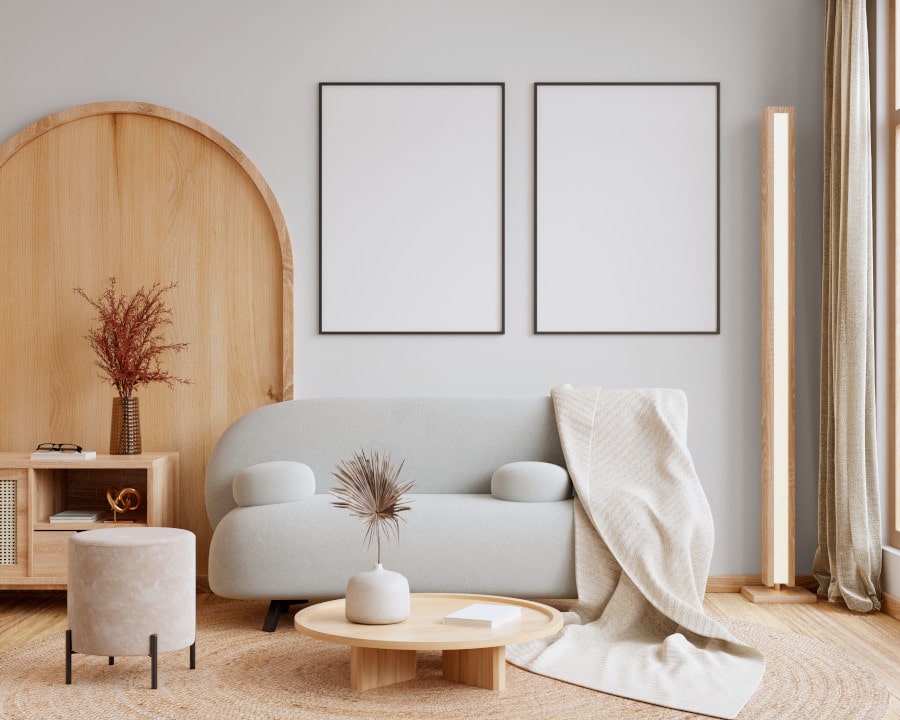
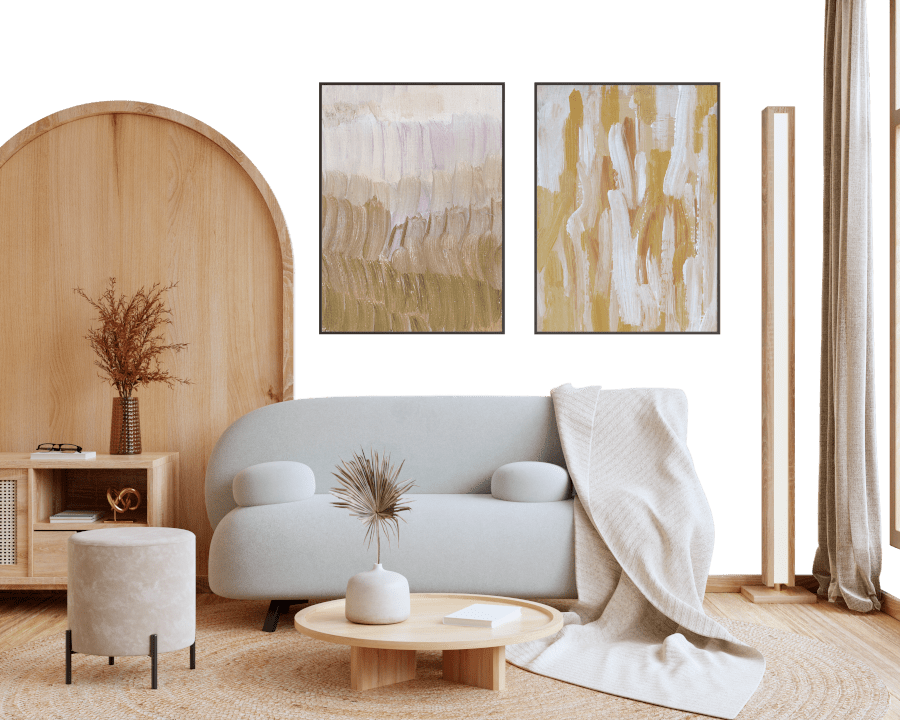
4000K
Coordinating colors.
Colors that go with Benjamin Moore Springfield Sage:
Monochromatic color scheme

This scheme consists of various shades, tints, and tones of a single color. While it offers a perfect combination of hues, without accent décor it may become monotonous.
Lighter shades
510
Springfield Sage
Darker shades
Complementary color scheme

This color scheme is a combination of two shades that are opposite each other on the color wheel. The high contrast between these colors creates a vibrant and dynamic visual effect. For the color Springfield Sage with a orange hue, complementary colors are those with a blue hue close to 236, such as Benjamin Moore Approaching Storm and Luxe.
LRV of Springfield Sage
Springfield Sage has an LRV of 23.02% and refers to Medium colors that reflect a lot of light. Why LRV is important?

Light Reflectance Value measures the amount of visible and usable light that reflects from a painted surface.
Simply put, the higher the LRV of a paint color, the brighter the room you will get.
The scale goes from 0% (absolute black, absorbing all light) to 100% (pure white, reflecting all light).
Act like a pro: When choosing paint with an LRV of 23.02%, pay attention to your bulbs' brightness. Light brightness is measured in lumens. The lower the paint's LRV, the higher lumen level you need. Every square foot of room needs at least 40 lumens. That means for a 200 ft2 living room you’ll need about 8000 lumens of light – e.g., eight 1000 lm bulbs.
Color codes
We have collected almost every possible color code you could ever need. To copy the code, just click the icon to the right of it.
| Format | Code | |
|---|---|---|
| HEX | #858367 | |
| RGB Decimal | 133, 131, 103 | |
| RGB Percent | 52.16%, 51.37%, 40.39% | |
| HSV | Hue: 56° Saturation: 22.56% Value: 52.16% | |
| HSL | hsl(56, 13, 46) | |
| CMYK | Cyan: 0.0 Magenta: 1.5 Yellow: 22.56 Key: 47.84 | |
| YIQ | Y: 128.406 I: 10.189 Q: -8.291 | |
| XYZ | X: 20.237 Y: 22.199 Z: 16.047 | |
| CIE Lab | L:54.237 a:-4.181 b:15.456 | |
| CIE Luv | L:54.237 u:2.712 v:20.76 | |
| Decimal | 8749927 | |
| Hunter Lab | 47.116, -5.783, 12.787 |
Color equivalents
1504
Passion Vine
Benjamin Moore
HC-112
Tate Olive
Benjamin Moore

S380-6
Ecological
Behr
SW 6179
Artichoke
Sherwin Williams

PPU8-21
Mossy Bank
Behr
1497
Rolling Hills
Benjamin Moore
HC-109
Sussex Green
Benjamin Moore
S350-5
Green Scene
Behr
PPU10-18
Lizard Green
Behr
PPU9-23
Oregano Spice
Behr
SW 7729
Edamame
Sherwin Williams

HC-110
Wethersfield Moss
Benjamin Moore

SW 0014
Sheraton Sage
Sherwin Williams

PPU10-17
Aloe Thorn
Behr
HC-106
Crownsville Gray
Benjamin Moore

475
Galápagos Green
Benjamin Moore
2144-20
Eucalyptus Leaf
Benjamin Moore
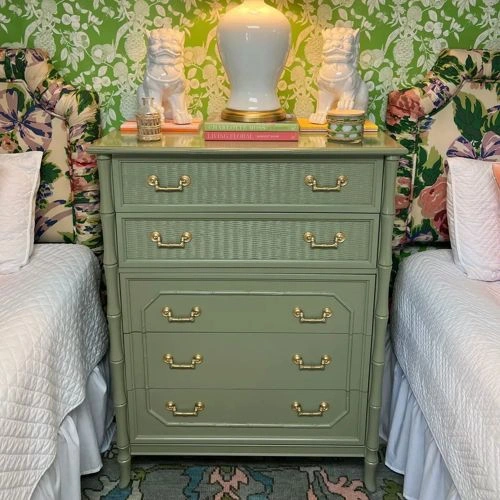
1532
Majestic Sage
Benjamin Moore

SW 2861
Avocado
Sherwin Williams



